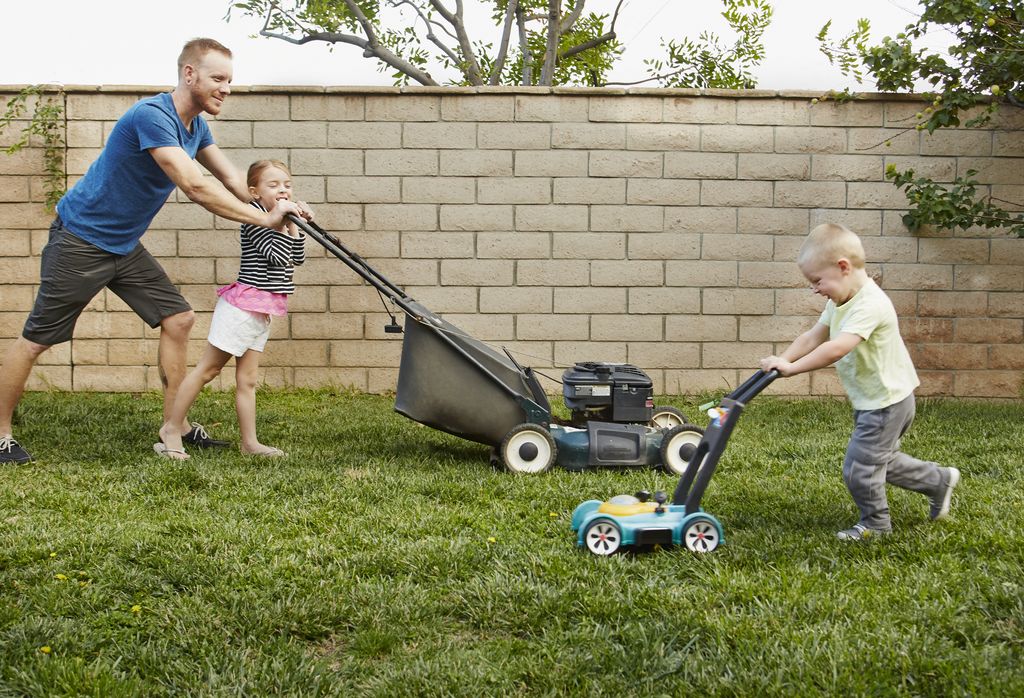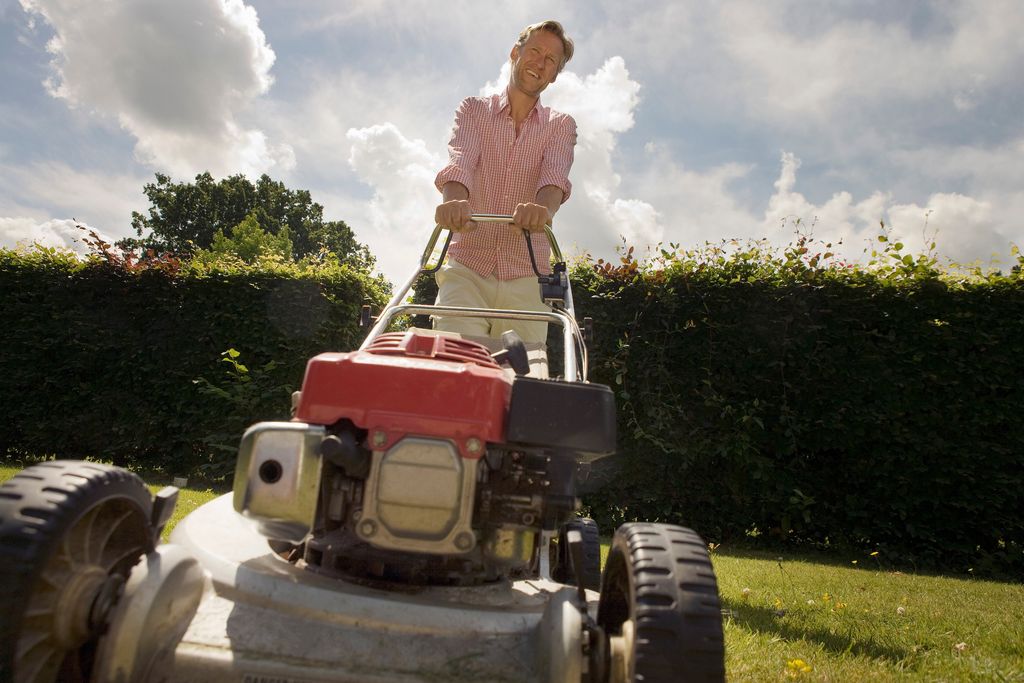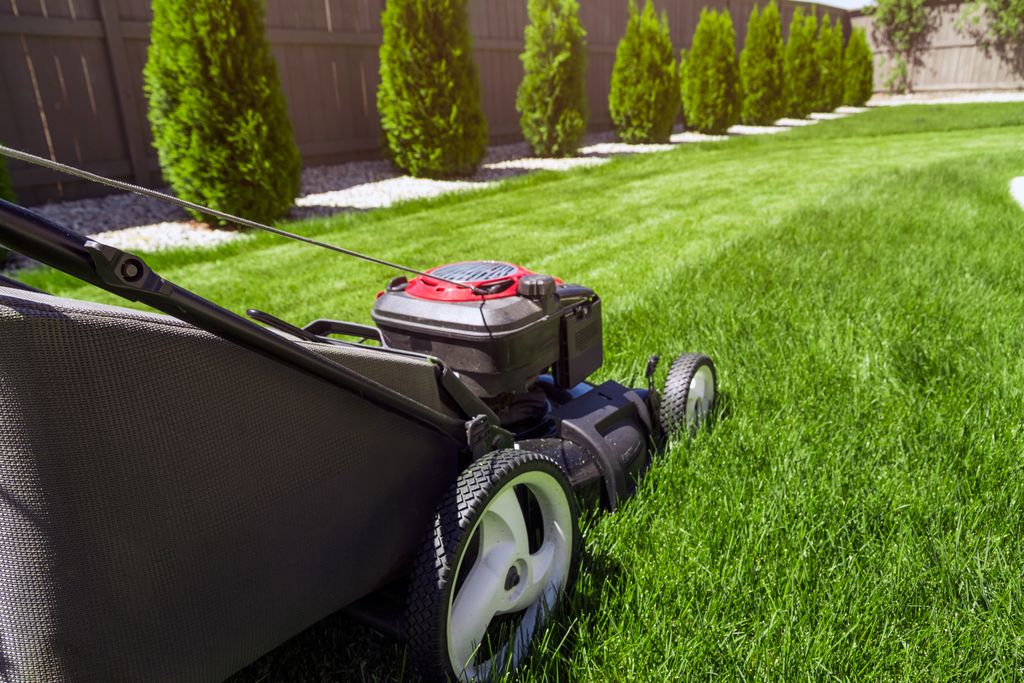As the summer sun shines bright and the days stretch long, there’s nothing quite like stepping into your backyard, where lush greenery meets the warm breeze.
But maintaining that beautiful lawn requires a little more than just admiring it from your porch! Summer lawn care is essential, especially when it comes to mowing.
So, when is the best time to mow your lawn during these sizzling months? Let’s dive into the details!
This post contains affiliate links. As an Amazon Associate, I earn from qualifying purchases at no additional cost to you.
Why Timing Matters
Mowing your lawn at the right time can make all the difference between a thriving green space and a patchy, unhealthy yard.
The heat of summer can stress your grass, and mowing at the wrong time can contribute to this stress.
Here are some key reasons why timing is crucial:
- Grass Health: Mowing at the right time helps your grass recover quickly, giving it the best chance to thrive.
- Weed Control: Regular mowing can prevent weeds from going to seed, helping you maintain a tidy lawn.
- Aesthetic Appeal: Keeping your lawn at an even height enhances its overall appearance and makes your landscaping look polished.
The Ideal Time to Mow
So, when exactly is the best time to mow during summer?
The answer is: It depends on various factors, including temperature, humidity, and the specific type of grass you have.
Here’s a helpful breakdown:
| Factor | Morning (6 AM – 10 AM) | Afternoon (2 PM – 6 PM) | Evening (6 PM – 8 PM) |
|---|---|---|---|
| Temperature | Cool, grass is dewy | Hot, grass may be dry | Cooler, grass is dry |
| Grass Health | Optimal | Stressful | Moderate |
| Noise Level | Low | High | Moderate |
| Weed Growth | Good for prevention | Weeds may spread | Good for prevention |
Morning Mowing: The Best Option
Mowing in the morning is often considered the best choice for summer lawn care.
Here’s why:
- Dew Benefits: Mowing when the grass is still dewy helps keep the blades cool and reduces stress on the grass. Plus, the moisture can prevent the clippings from sticking to your mower’s deck, making cleanup easier.
- Lower Temperatures: The cooler morning air helps you avoid overheating and makes the task much more pleasant.
- Less Traffic: There’s typically less foot traffic in the early hours, allowing for a more peaceful mowing experience.
Afternoon Mowing: Not Recommended
While mowing in the afternoon might be more convenient for some, it’s generally not the best choice for your lawn.
Here’s why:
- Heat Stress: Mowing during the hottest part of the day can stress your grass, resulting in a brown, unhealthy lawn. The high temperatures can also lead to scalping, where the mower cuts too close to the soil, damaging the grass’s roots.
- Increased Weeds: Cutting grass at this time can create an environment where weeds thrive. Afternoon mowing can disturb soil, making it easier for weeds to establish themselves.
Evening Mowing: A Mixed Bag
Mowing in the evening can be a good compromise, but it still has its drawbacks.
Here are some pros and cons:
- Pros:
- Cooler temperatures make for a more comfortable mowing experience.
- It allows you to avoid the heat of midday.
- Cons:
- The grass may be dryer, leading to potential scalping.
- Evening mowing can create a perfect environment for fungal diseases due to moisture from evening dew settling overnight.
Grass Type Considerations
Your grass type plays a significant role in determining the best time to mow.
Different grasses have unique growth patterns and care requirements.
Here’s a breakdown of common summer grasses:
| Grass Type | Ideal Mowing Height | Best Time to Mow | Special Considerations |
|---|---|---|---|
| Bermuda Grass | 1 – 2 inches | Early morning | Thrives in heat; mow frequently. |
| Fescue | 2 – 4 inches | Early morning | Needs regular watering in summer. |
| Zoysia | 1 – 2 inches | Early morning | Can tolerate heat but needs moisture. |
| Kentucky Bluegrass | 2.5 – 4 inches | Early morning | Requires regular watering; keep blades sharp. |
Tips for Effective Mowing
To make the most of your mowing sessions in summer, keep these tips in mind:
- Keep Your Mower Blades Sharp: Dull blades tear grass rather than cut it cleanly, leading to a stressed lawn.
- Mow High: Set your mower to the highest setting suitable for your grass type. Longer grass can help shade the soil and retain moisture.
- Mow with Purpose: Don’t mow when the grass is wet, and avoid cutting it too short. Aim to remove no more than one-third of the grass blade in a single mowing.
- Change Up Your Pattern: Varying your mowing pattern each time helps avoid soil compaction and encourages upright growth.
The Bottom Line
Understanding the best time to mow your lawn in summer is essential for maintaining a healthy, beautiful yard.
By prioritizing morning mow sessions, being mindful of your grass type, and employing effective mowing techniques, you’ll not only improve the health of your lawn but also enjoy the satisfaction of a well-kept outdoor space.
So grab your mower and get ready to make your lawn the envy of the neighborhood! Remember, consistent summer lawn care is the key to a lush, thriving yard.
Happy mowing!



